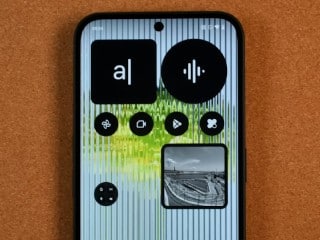- Home
- Internet
- Internet News
- Ukraine Begins Using Clearview AI's Facial Recognition to Spot Invading Russians, Identify Their Dead
Ukraine Begins Using Clearview AI's Facial Recognition to Spot Invading Russians, Identify Their Dead
Clearview founder said his startup had more than 2 billion images from the Russian social media service VKontakte at its disposal.

Photo Credit: Unsplash/ Harry Cunningham
The database can help Ukraine identify the dead more easily than trying to match fingerprints
Ukraine's defence ministry on Saturday began using Clearview AI's facial recognition technology, the company's chief executive told Reuters, after the US startup offered to uncover Russian assailants, combat misinformation and identify the dead.
Ukraine is receiving free access to Clearview AI's powerful search engine for faces, letting authorities potentially vet people of interest at checkpoints, among other uses, added Lee Wolosky, an adviser to Clearview and former diplomat under US presidents Barack Obama and Joe Biden.
The plans started forming after Russia invaded Ukraine and Clearview Chief Executive Hoan Ton-That sent a letter to Kyiv offering assistance, according to a copy seen by Reuters.
Clearview said it had not offered the technology to Russia, which calls its actions in Ukraine a "special operation."
Ukraine's Ministry of Defense did not reply to requests for comment. Previously, a spokesperson for Ukraine's Ministry of Digital Transformation said it was considering offers from US-based artificial intelligence companies like Clearview. Many Western businesses have pledged to help Ukraine, providing Internet hardware, cybersecurity tools and other support.
The Clearview founder said his startup had more than 2 billion images from the Russian social media service VKontakte at its disposal, out of a database of over 10 billion photos total.
That database can help Ukraine identify the dead more easily than trying to match fingerprints and works even if there is facial damage, Ton-That wrote. Research for the US Department of Energy found decomposition reduced the technology's effectiveness while a paper from a 2021 conference showed promising results.
Ton-That's letter also said Clearview's technology could be used to reunite refugees separated from their families, identify Russian operatives and help the government debunk false social media posts related to the war.
The exact purpose for which Ukraine's defense ministry is using the technology is unclear, Ton-That said. Other parts of Ukraine's government are expected to deploy Clearview in the coming days, he and Wolosky said.
The VKontakte images make Clearview's dataset more comprehensive than that of PimEyes, a publicly available image search engine that people have used to identify individuals in war photos, Wolosky said. VKontakte did not immediately respond to a request for comment; US social media company Facebook, now Meta Platforms Inc, had demanded Clearview stop taking its data.
At least one critic says facial recognition could misidentify people at checkpoints and in battle. A mismatch could lead to civilian deaths, just like unfair arrests have arisen from police use, said Albert Fox Cahn, executive director of the Surveillance Technology Oversight Project in New York.
“We're going to see well-intentioned technology backfiring and harming the very people it's supposed to help,” he said.
Ton-That said Clearview should never be wielded as the sole source of identification and that he would not want the technology to be used in violation of the Geneva Conventions, which created legal standards for humanitarian treatment during war.
Like other users, those in Ukraine are receiving training and have to input a case number and reason for a search before queries, he said.
Clearview, which primarily sells to US law enforcement, is fighting lawsuits in the United States accusing it of violating privacy rights by taking images from the Web. Clearview contends its data gathering is similar to how Google search works. Still, several countries including the United Kingdom and Australia have deemed its practices illegal.
Cahn described identifying the deceased as probably the least dangerous way to deploy the technology in war, but he said that “once you introduce these systems and the associated databases to a war zone, you have no control over how it will be used and misused.”
© Thomson Reuters 2022
Get your daily dose of tech news, reviews, and insights, in under 80 characters on Gadgets 360 Turbo. Connect with fellow tech lovers on our Forum. Follow us on X, Facebook, WhatsApp, Threads and Google News for instant updates. Catch all the action on our YouTube channel.
Related Stories
- Samsung Galaxy Unpacked 2026
- iPhone 17 Pro Max
- ChatGPT
- iOS 26
- Laptop Under 50000
- Smartwatch Under 10000
- Apple Vision Pro
- Oneplus 12
- OnePlus Nord CE 3 Lite 5G
- iPhone 13
- Xiaomi 14 Pro
- Oppo Find N3
- Tecno Spark Go (2023)
- Realme V30
- Best Phones Under 25000
- Samsung Galaxy S24 Series
- Cryptocurrency
- iQoo 12
- Samsung Galaxy S24 Ultra
- Giottus
- Samsung Galaxy Z Flip 5
- Apple 'Scary Fast'
- Housefull 5
- GoPro Hero 12 Black Review
- Invincible Season 2
- JioGlass
- HD Ready TV
- Latest Mobile Phones
- Compare Phones
- Tecno Pova Curve 2 5G
- Lava Yuva Star 3
- Honor X6d
- OPPO K14x 5G
- Samsung Galaxy F70e 5G
- iQOO 15 Ultra
- OPPO A6v 5G
- OPPO A6i+ 5G
- Asus Vivobook 16 (M1605NAQ)
- Asus Vivobook 15 (2026)
- Brave Ark 2-in-1
- Black Shark Gaming Tablet
- boAt Chrome Iris
- HMD Watch P1
- Haier H5E Series
- Acerpure Nitro Z Series 100-inch QLED TV
- Asus ROG Ally
- Nintendo Switch Lite
- Haier 1.6 Ton 5 Star Inverter Split AC (HSU19G-MZAID5BN-INV)
- Haier 1.6 Ton 5 Star Inverter Split AC (HSU19G-MZAIM5BN-INV)




![[Partner Content] OPPO Reno15 Series: AI Portrait Camera, Popout and First Compact Reno](https://www.gadgets360.com/static/mobile/images/spacer.png)









